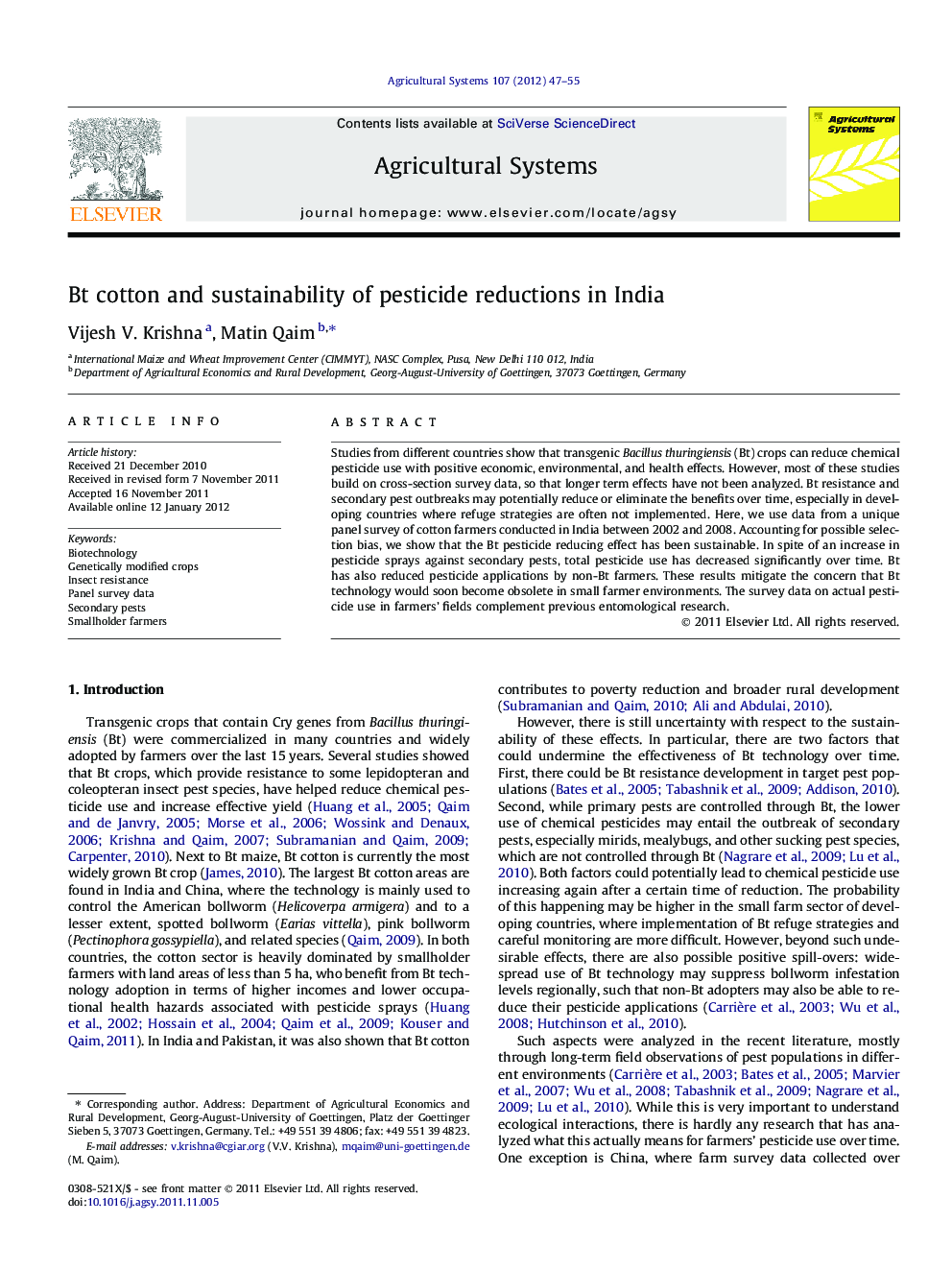| کد مقاله | کد نشریه | سال انتشار | مقاله انگلیسی | نسخه تمام متن |
|---|---|---|---|---|
| 4491422 | 1623263 | 2012 | 9 صفحه PDF | دانلود رایگان |

Studies from different countries show that transgenic Bacillus thuringiensis (Bt) crops can reduce chemical pesticide use with positive economic, environmental, and health effects. However, most of these studies build on cross-section survey data, so that longer term effects have not been analyzed. Bt resistance and secondary pest outbreaks may potentially reduce or eliminate the benefits over time, especially in developing countries where refuge strategies are often not implemented. Here, we use data from a unique panel survey of cotton farmers conducted in India between 2002 and 2008. Accounting for possible selection bias, we show that the Bt pesticide reducing effect has been sustainable. In spite of an increase in pesticide sprays against secondary pests, total pesticide use has decreased significantly over time. Bt has also reduced pesticide applications by non-Bt farmers. These results mitigate the concern that Bt technology would soon become obsolete in small farmer environments. The survey data on actual pesticide use in farmers’ fields complement previous entomological research.
► A panel survey of Indian cotton farmers was conducted between 2002 and 2008.
► Bt technology adoption has led to higher yields and lower pesticide use.
► Total pesticide use has decreased significantly over time.
► Bt has also reduced pesticide applications by non-Bt cotton farmers.
► Bt technology effects are sustainable in small farmer environments.
Journal: Agricultural Systems - Volume 107, March 2012, Pages 47–55